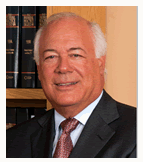When someone fakes a person’s signature without their permission, it is considered forgery. One of the most common forms of forgery is signing another person’s name to a check. It is also possible for data, objects as well as documents to be forged. Forgery can also be committed with historical papers, contracts, diplomas, art objects identification cards, certificates, and more.
Signature Forgery
This is the intentional act of falsely replicating another individual’s signature. It is most common for this to occur with a check, driver’s license, a will, a deed, or another type of document. Once a person’s signature is placed on a document, it implies this individual agrees with all the circumstances associated with the document. Any other type of identification, such as a person’s fingerprint, does not indicate intent. It is possible to get a fingerprint from a person who is unconscious.
Consequences
There are serious consequences when someone successfully forges another person’s signature. An unauthorized signature could provide access to another person’s bank accounts. It could make a person appear to agree to unreasonable terms that are part of a legal contract. Should someone know their signature has been forged, they need to act immediately to minimize any damage.
Report Forgery
The moment a person discovers someone has forged their signature, they should immediately contact the business or organization that received the document with the signature forgery. This will make it possible for the business or organization to correct any previous actions and stop any future actions authorized by the documents containing the forged signature. Certain businesses and organizations require any signature forgery to be reported within a specified amount of time.
Federal Punishment
Forging a signature is a federal offense. It could be punishable with incarceration of up to 15 years. This is the case if the forgery is used for military discharge papers, identity theft, immigration documents, or other types of federal documents. Most other types of forgery are subject to state law.
Florida Law
Basic forgery is classified as a third-degree felony in Florida. When a person is convicted of creating a forged instrument, or any other type of illegal forgery, it is classified as committing the crime of forgery. This is considered a felony in the third degree. This type of conviction comes with specific punishments.
*Incarceration of up to five years
*Probation of up to five years
*Fines of up to $5,000
Legal Defense
If it can be proven that a person did not have the intent to commit a deception, they may have a strong legal defense. Many forgery crimes must involve the intent to commit deceit on another person. It’s possible for a person to only create a forged document, and not use it. It’s also possible for a person to remain free of intent because they didn’t participate directly in illegal activity with the intention to deceive.
Once a person has been charged with forgery, they will need an attorney to provide them with the best possible legal defense. These legal professionals have the knowledge and experience necessary to know when a situation requires a plea bargain. They will know how to present a valid argument to support their client’s position, protect their legal rights, and more.

Roy J. Kahn, with years of legal experience in a wide variety of criminal law, heads a “boutique” firm, which means that your attorney is Roy J. Kahn, not a paralegal. If you have been charged or are about to be charged with a crime—or if you have been contacted to be a witness in a federal grand jury case, you need a qualified defense. You should consult with an attorney immediately and know that you have a right to make no statement until you have consulted with an attorney To contact Mr. Kahn, he can be reached at 305-358-7400.


Recent Comments